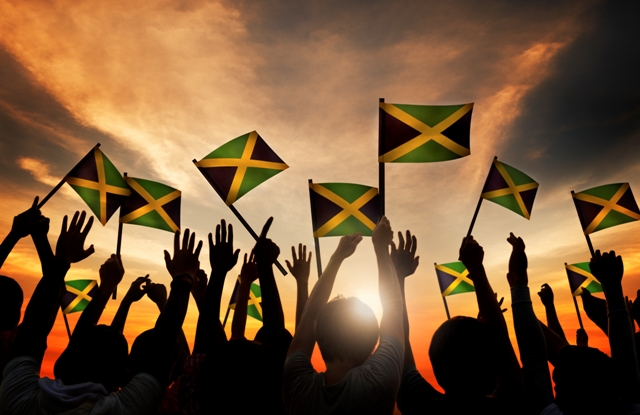 It is often said that oppositions don’t win elections, governments lose them [credit: iStock]
It is often said that oppositions don’t win elections, governments lose them [credit: iStock]
The island’s closest ever election on 25 February saw the Jamaica Labour Party (JLP) oust the People’s National Party (PNP) by a margin of less than one percentage point – 4,106 votes (or just 3,117, according to the Electoral Commission) out of nearly 870,000 cast for the two main parties. The Jamaica Observer quoted the political ombudsman, Donna Parchment Brown, as declaring it ‘probably the closest election Jamaica has had’.
With a swing of less than 4%, it leaves the new government of Andrew Holness with the slimmest of majorities—32 seats to 31. Some analysts expect a fresh election soon. The results fluctuated between the two parties on election night, putting the JLP on 33 seats and the PNP on 30. There were appeals for calm as several seats went to recounts, with one apparently winning JLP candidate, Norman Dunn, eventually losing by just nine votes.
Despite rumours of stuffed ballot boxes and troops on the street, Caricom election observers said voters were able to cast their ballots without intimidation or harassment and ‘the results reflected the will of the people’.
It was another poor showing for pollsters, with The Gleaner quoting two forecasts that the PNP would win; one predicting that Portia Simpson Miller would remain prime minister with a 40-23 majority, the other projecting a 36-18 seat split, with nine up for grabs. Even four days before the JLP victory, the Gleaner forecast: ‘PNP is still likely to win the next general election and will capture at least 40 of the 63 seats.’
The JLP has been in power for only four of the past 26 years, which might explain how easily it was written off. Holness offered the Jamaica Observer another explanation: the PNP, he claimed, relied on ‘garrison’ constituencies to underpin their vote and thus had less interest in campaigning and running on their record. In these party-affiliated ghetto areas, both criminal and political activities are tightly controlled by gang leaders or ‘dons’. Holness claimed: ‘You will never see the PNP appeal to the uncommitted, they don’t need to. They have 12 or more [garrison] seats that they win by 2,000 or more votes. Why would they need to change anything?’ However, as readers’ comments under the article show, the idea that the JLP does not also have ‘garrison’ seats is seen as ludicrous. (A Brief History of Seven Killings, the recent Booker prize-winning novel by the Jamaican writer Marlon James, centres on the polarised politics of the 1970s when the PNP-JLP rivalry was played out violently in the garrisons).
It is often said that oppositions don’t win elections, governments lose them and, while the Simpson Miller administration had been blamed for its austerity programme, the JLP victory was all the more surprising for the clear signs of a turnaround in the economy. The World Bank said institutional reforms to improve the climate for the private sector were restoring confidence, Jamaica’s credit rating had improved and $2bn had been raised on capital markets. However, growth is still low—forecast at 1.9% this year and 2.2% in 2017—and unemployment is at 13% overall and nearly 40% among young people.
Simpson Miller’s refusal to agree to the customary pre-election debate with Holness was widely seen as a costly error, and she also drew criticism over the poor response to the chikungunya epidemic, the strange Outameni affair, when J$180m ($1.5m) was funnelled into a dubious tourist attraction by the National Housing Trust, and the J$60m spent on ministers’ new cars. She was also condemned (albeit largely from abroad) for failing to review anti-homosexual legislation, known as the buggery law, as promised during the 2011 elections.
Meanwhile, JLP’s pledge to eliminate income tax for 120,000 people earning under J$1.5m ($12,000) a year was a vote-winner, with Holness setting up a website, 10pointplan.com, to rebut PNP criticisms of the plan. The JLP was far ahead of its rival in many areas of social media, in fact; the previous government’s Twitter account had fallen dormant and a minister dismissed Twitter users as merely an ‘articulate minority’—a phrase that came back to haunt the PNP on election night.
One commentator, Michael Abrahams, listed the reasons for the PNP’s defeat as ‘broken promises, lack of transparency and accountability, arrogance, failure to recognise the power and influence of social media, an absent leader, and possibly the most bizarre election campaign the country has ever seen’.
He noted the contrast between the party leaders’ responses to the question of what they would do if they lost the election: Holness gave the trite but sensible reply of pledging to serve the people in whatever capacity, whereas Simpson Miller’s response was: ‘You see how the people them love me … Do I look like a loser? I have no plans to lose.’
Arrogance is an unappealing trait in anyone but among politicians it is a surefire way to repel voters.



